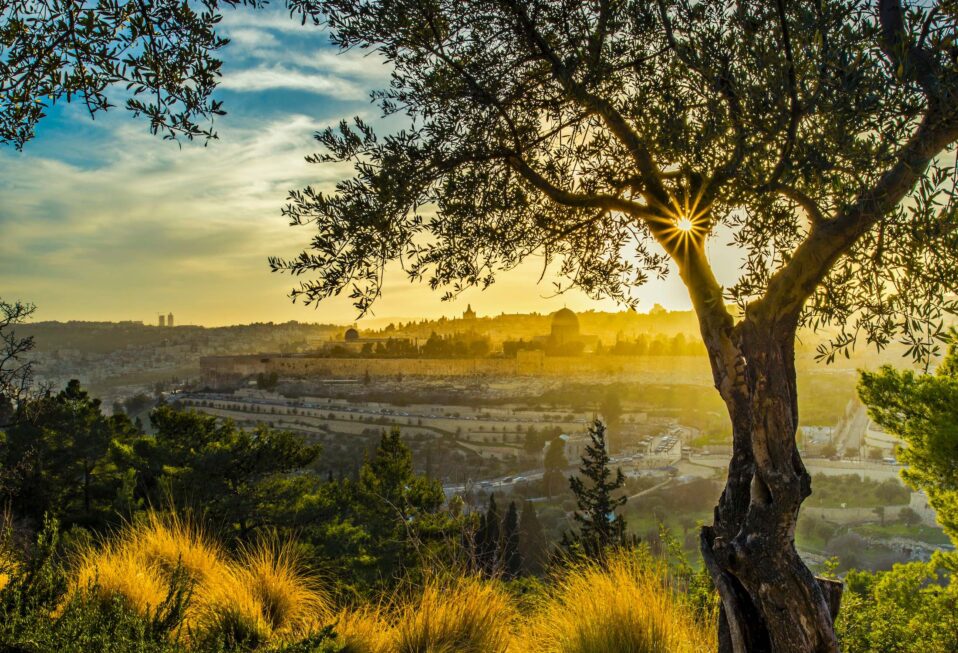By Julie Stahl
“When you enter the land and plant any kind of fruit tree, regard its fruit as forbidden. For three years you are to consider it forbidden; it must not be eaten” (Leviticus 19:23 NIV).
Tu B’Shvat is also known as Rosh HaShanah La’Ilanot, the New Year of the Trees.
Israel actually has four “new year’s days” each year: the biblical New Year in the spring just before Passover on the first of the Hebrew month of Nisan. It determines the pilgrimage festivals and other biblical holidays. In biblical times, it also determined the reign of the kings.
The second “new year” is on the first of Elul and is the beginning of the year for tithing livestock; the third “new year” is in the early autumn, on the first of Tishrei at Rosh Hashanah (the Feast of Trumpets). That is used for counting years—sabbatical and jubilee years—and for planting.
Then there’s Tu B’Shvat, the fourth New Year. Celebrated in late January or early February, it’s the beginning of the year for counting the age of trees. That is important because the Bible says not to eat the fruit of a tree for the first three years.
Today in Israel, Tu B’Shvat is celebrated as a kind of Arbor Day or ecological holiday. One of the main traditions on this day is to plant trees.
In 1901, the Fifth Zionist Congress in Basel decided to establish Keren Kayemeth LeIsrael-Jewish National Fund (KKL-JNF) in order to purchase land in what was then called Ottoman Turkish Palestine. But there was more.
“We must establish a national forestry society for the planting of trees in the land,” said Johann Kremenetzky, the first chairman of the KKL-JNF. Within their first decade they had planted their first forest.
From the very beginning to the end, trees hold a special metaphorical significance in the Bible. In Genesis 2:9, we are introduced to the Tree of Life and the Tree of the Knowledge of Good and Evil. Then, in Revelation 22, we see the Tree of Life again as well as many times in between.
According to Rabbi Welsh, Tu B’Shvat also has a “special significance” because man is compared in the Bible to the “tree of the field.”
In Psalm 1:3, we are told that the man who delights in the law of the Lord and meditates on the word of God shall be like “a tree planted by streams of water, which yields its fruit in season and whose leaf does not wither—whatever they do prospers.”
And again, in Psalm 92:12, “The righteous will flourish like a palm tree, they will grow like a cedar of Lebanon.”
Again, and again in Scripture, God uses trees to speak to us.
In honor of the trees, on Tu B’Shvat, fruits of the seven species are eaten from Deuteronomy 8:8—olives, dates, pomegranates, figs and grapes as well as other dried fruits.
Julie Stahl is a correspondent for CBN News in the Middle East. A Hebrew speaker, she has been covering news in Israel full-time for more than 20 years. Julie’s life as a journalist has been intertwined with CBN—first as a graduate student in Journalism at Regent University; then as a journalist with Middle East Television (METV) when it was owned by CBN from 1989-91; and now with the Middle East Bureau of CBN News in Jerusalem since 2009. She is also an integral part of CBN News’ award-winning show, Jerusalem Dateline, a weekly news program providing a biblical and prophetic perspective to what is happening in Israel and the Middle East.




Post a comment